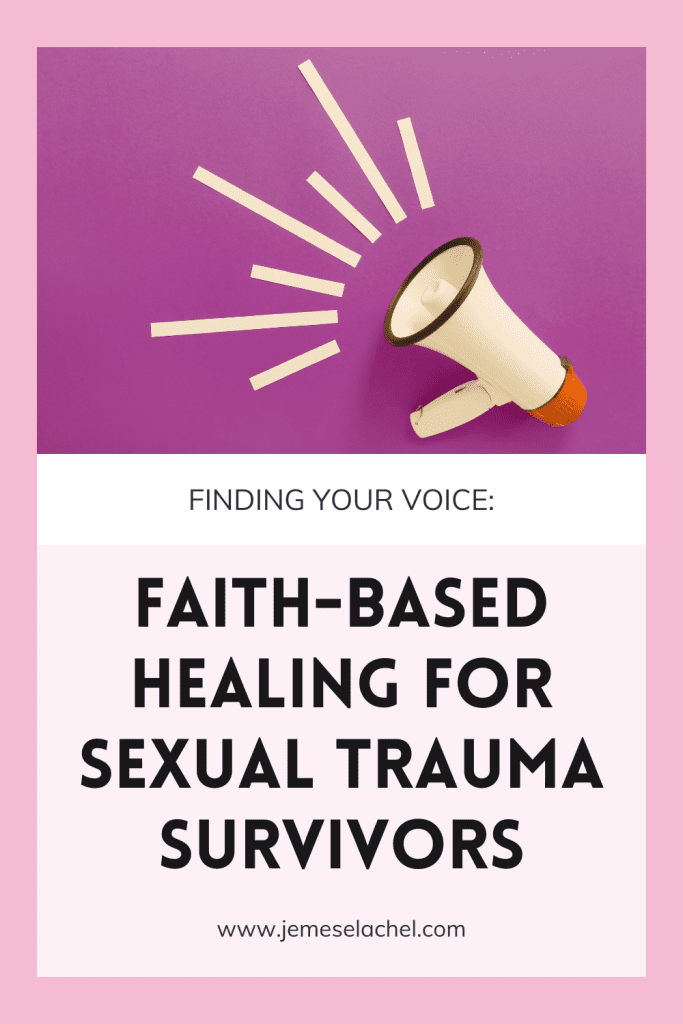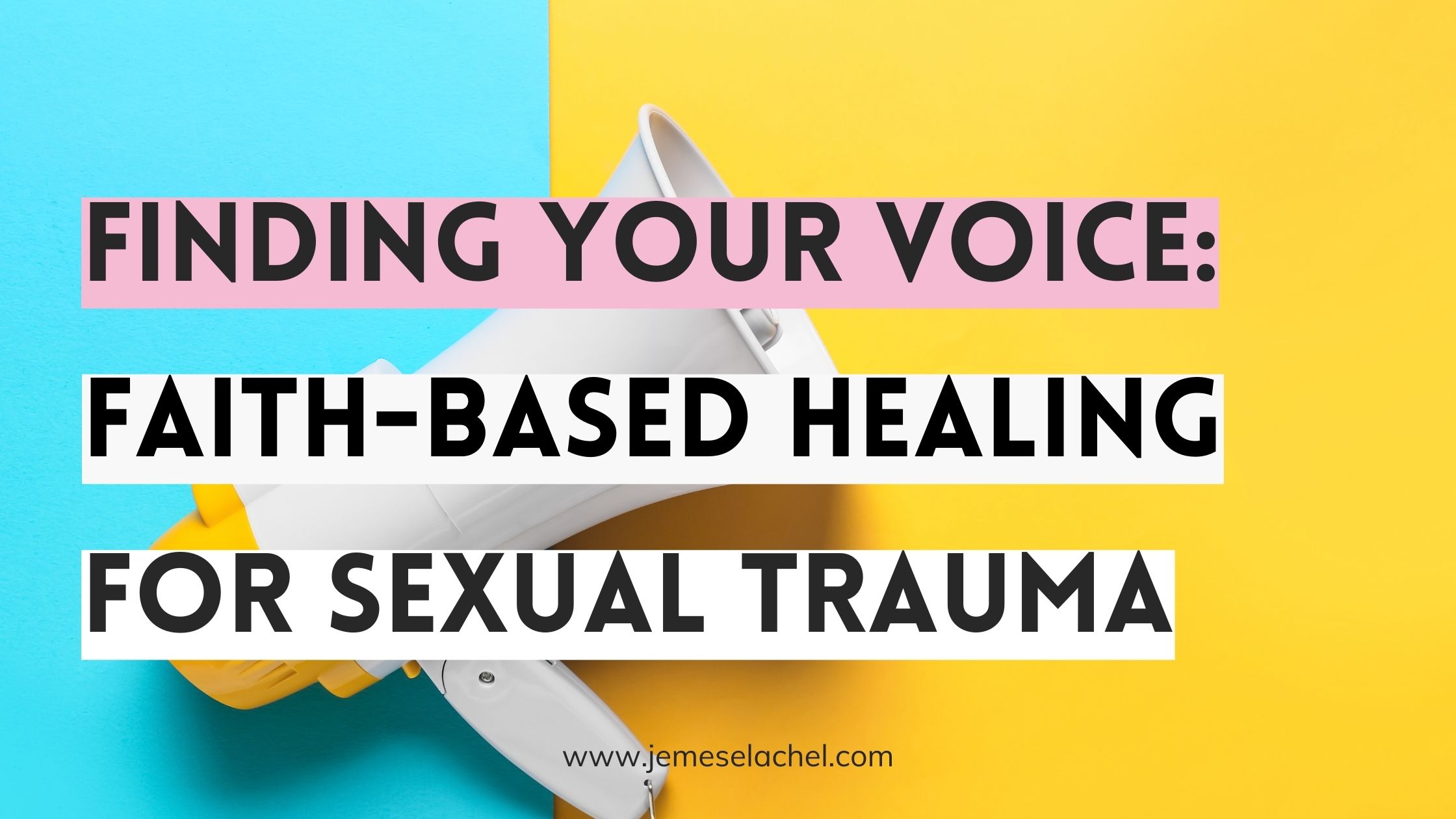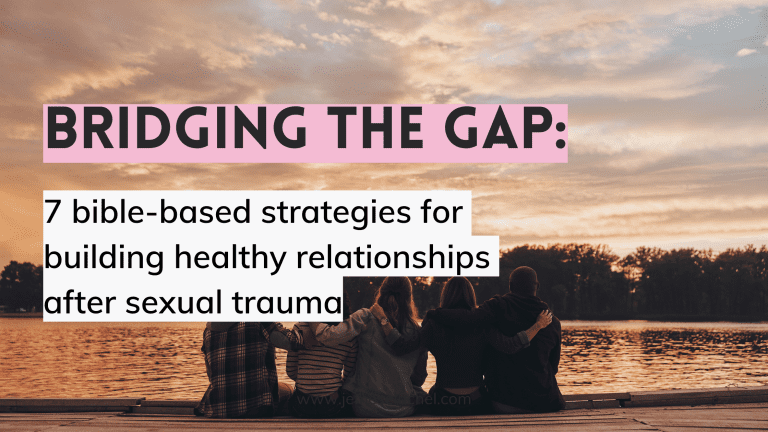 As a seasoned trauma therapist, I’ve witnessed firsthand the devastating impact sexual abuse can have on a person’s life. But faith-based healing for survivors of sexual abuse is possible. With God and application of few practical tips, you can reclaim your voice and regain control of your life.
As a seasoned trauma therapist, I’ve witnessed firsthand the devastating impact sexual abuse can have on a person’s life. But faith-based healing for survivors of sexual abuse is possible. With God and application of few practical tips, you can reclaim your voice and regain control of your life.
In this post, I’m excited to share some unique insights to help you on your journey towards inner healing and freedom.
Embracing Faith-Based Healing for Sexual Abuse Survivors: A Journey of Restoration
In the aftermath of sexual abuse, silence can shroud survivors in darkness. Acknowledging the impact of silence is often one of the first steps towards healing. By breaking the silence and sharing your story, you empower yourself and create space for healing.
1. Turn to Your Faith
In the aftermath of sexual abuse, turning to your faith can provide a powerful source of strength and comfort. Spend time in prayer, read scripture, and find a supportive faith community to lean on as you begin to heal. Remember, God is always with you, and He understands and cares about your pain.
Remember: Faith is like a superpower that can help you conquer even the toughest challenges in life. Use it wisely, and you’ll be unstoppable!
2. Seeking Support: Empowering Steps for Faith-Based Healing in Sexual Abuse Survivors
Connecting with others who have experienced sexual abuse can be incredibly validating and empowering. Consider joining a support group, talking to a trusted friend or family member, or working with a trauma therapist who shares your faith. Don’t suffer in silence. Remember, you deserve to feel heard and supported.

In other words: Teamwork makes the dream work! With the right support system, you’ll have all the tools you need to overcome any obstacle that comes your way.
3. Express Your Emotions
Processing and expressing your emotions is an essential part of healing from sexual abuse. Get creative and try journaling, drawing, or painting to explore your feelings in a safe and supportive environment. Remember, there’s no right or wrong way to express yourself. The key is to find a method that works for you.
Think of it like this: Emotions are like balloons. If you don’t let them out, they’ll start to pile up and eventually explode. So go ahead and pop that emotional balloon!
4. Create Guidelines
Creating guidelines, from a godly perspective, is crucial for protecting yourself and regaining control after experiencing sexual abuse. It’s similar to what many call “boundary setting,” but it’s more proactive and positive. Don’t be afraid to say “no” to activities or situations that make you uncomfortable, and set limits on how much you’re willing to share with others. By setting guidelines for how you want to be treated and how you want to treat others, you can create a positive and healthy relationship dynamic. Remember, your safety and well-being come first.
Key takeaway: Think of your guidelines as traffic signals – they keep you safe and on track, so don’t ignore them!
5. Reclaim Your Voice
Reclaiming your voice means speaking up for yourself and asserting your needs and boundaries. Start by setting small goals and taking small steps towards asserting yourself. Practice assertive communication, advocate for yourself, and engage in activities that build confidence and self-esteem. Remember, you have the power to take back control of your life.
Your voice is like a superhero cape. Put it on, and you’ll feel powerful and unstoppable!
6. Responsible Storytelling
Sharing your story can be a powerful tool for healing and advocacy, but it’s crucial to be responsible with how you tell it. Why? Because your story is powerful. You want to be careful with how you share it as not to re-traumatize yourself and/or others. Consider your audience, and careful about any graphic or detailed descriptions that may be triggering. Seek support from a therapist or trusted individual beforehand so that telling your story doesn’t become overwhelming to you.

Remember: Not everyone is equipped to carry the weight of your story. be mindful of who you tell, how you tell it, when, and where.
Conclusion
In conclusion, with faith and practical application, you can find your voice and take back control of your life after experiencing sexual
So, Let’s hear from you:
What steps have you taken to empower yourself after experiencing sexual abuse? We’d love to hear your thoughts and experiences in the comments below. Your input can help others who may be struggling with similar issues. Comment below and let’s start a conversation and support one another on this journey of healing and growth.

Jemese LaChel, a licensed Christian trauma therapist who has triumphed over multiple instances of sexual abuse, provides compassionate guidance to help women reclaim their voices, find healing, and embrace the hope found in Jesus Christ. Through her expertise, Jemese inspires resilience and fosters spiritual growth, emphasizing that women’s identity is not defined by their past. She encourages them to experience security through a deep relationship with God in Jesus, enabling them to release trauma and embrace lasting peace. For additional information, please visit her website at jemeselachel.com or join her on Instagram at instagram.com/jemeselachel.







